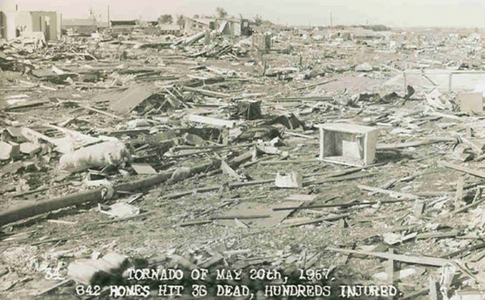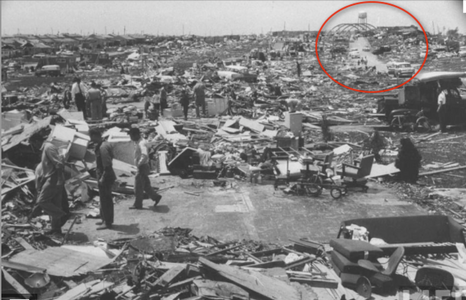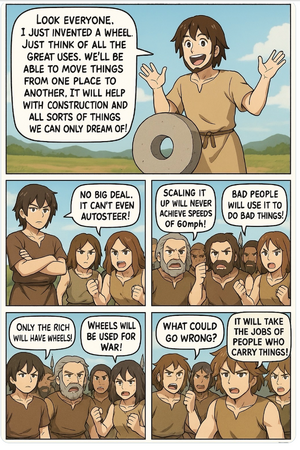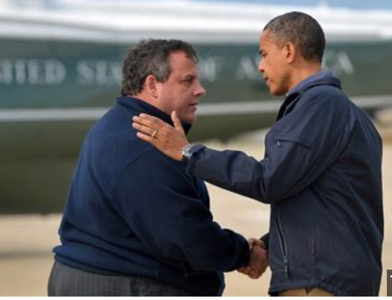I completely agree that there is a role for the federal government in a coordination/logistics role (only) in a major disaster such as an intense hurricane or tsunami. That said....
FWIW, for ~200 of our nation's ~250 years of existence we functioned fine without a FEMA. That is in spite of considerable evidence the meteorological disasters of the late 19th Century were worse than today (see: ironically named,
When the Climate Was Perfect ) and the fact that the U.S.A's worst meteorological disasters since 1900 -- as measured by storm intensity -- all occurred in the 20's and 30's. As Roger points out, the wildfires of the late 1800's were far worse than today's wiping out Chicago and, separately, an area the size of Iowa! Somehow the remote Island of Hawaii managed to recover from the tsunami of 1946 -- the worst in the nation's history (Hawaii was a territory at the time) without a FEMA.
Keeping in mind I have sat in the executive offices of some of America's largest homeowners companies and one of its largest reinsurance companies, worked for attorneys on the other side of the issue, and have done consulting work for
both, I think I have a decent amount insight into these issues for someone from outside of the industry.
Attached is a cartoon that may apply to doing away with FEMA in its present form and
definitely applies to the opposition/indifference I have experienced with the National Disaster Review Board proposal. We can't imagine doing away with the NTSB and I believe the NDRB will do so much good that 10-15 years after its creation, America will feel the same way about it, too.
As to the almighty dollar, I recently had unusual hail damage to my home ( 1/2" hail but driven by a measured gust of 96 mph). Because it was a very small-scale storm (downburst-related), I feared the claims process. It turned out to be fast and very fair. I realize companies are under far less pressure in a situation like mine but think back to 9-11...
Warren Buffet said that GEICO and his other insurance companies
did not include terrorism in their coverage nor were their rates priced for that risk. Yet they paid the whole liability immediately to the tune of $2.4
billion. The other insurance companies of which I am aware, especially the life insurance companies, did the same. Now, the life insurance companies could have said, "Hey, we didn't include direct terrorism in our risk categories and the government/charity is paying you more than your policies are worth" (in many cases that was true). Yet they paid quickly and in full.
I truly believe that rates would stay the same or go down if we got the government out of the 'insurance business.' Right now, the actuaries have no idea how to price risk because they don't know whether FEMA or Congress is going to step in and pay all or part as they did with the phony "Superstorm" Sandy and a number of storms since. That entire event caused a huge loss of trust in the insurance industry and within the insurance industry. There is no question the quality of claims service in major disasters has greatly decreased in the aftermath. Why would ACME Insurance want to pay off immediately (as they used to) if the government is going to come in and subsidize the whole financial aftermath for the companies that
don't pay immediately and also covers the losses of the uninsured (subsidizes bad behavior)? Remember, government does not have to earn both money for retained earnings (to pay future claims) and a reasonable profit (so people will invest going forward).
Finally, I attach a photo of the discussion Obama's secret plan on a noisy tarmac, with Christie, to screw the taxpayers and the
responsible insurance companies in the wake of Sandy. While I can't speak for Republicans, we conservatives spend a lot of time talking about government's unintended consequences. The effects of this meeting continue to reverberate today.






